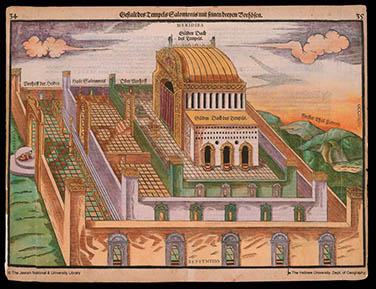In the Bible, things are holy not in themselves but only by association with God. God alone is holy in himself. But of what, we may then ask, does God’s holiness consist? I answer that it consists, first of all, of his separateness—his otherness from all that he has created—and second of his love.
God has no mate in the Hebrew Bible, no parents, no “natural” children, only a metaphorical sex life (oftenest as a male aggrieved by a faithless wife, Israel), and thus effectively no gender at all, despite the gramatically masculine terms that denote him. (If Yahweh were grammatically feminine in Hebrew, her name would be Tahweh, and if Elohim were grammatically feminine, she would be Elohoth. English translations follow Hebrew usage by employing masculine pronouns for the deity.) Sexlessness is a secondary feature defining God’s holiness, as it sets him apart not just from his human creatures but also from the sexually active gods of Israel’s neighbors.
In ancient Israel, nothing and no one in creation is without some minimal degree of association with God, but Israel’s association with him is so close that Israel becomes a virtual image of God. “You are a people holy to the Lord your God; the Lord your God has chosen you out of all the peoples on earth to be his people, his treasured possession,” Moses tells the Israelites (
What does God’s choice of Israel entail for the chosen people themselves? The full answer to that question is only to be found in the Law of God, the Torah, in its entirety. That said, the clear effect upon Israel of all the statutes of the Torah is to separate the people from all other peoples, thus making it in its separateness an image of God in his separateness.
You shall keep all my statutes and all my ordinances, and observe them, so that the land to which I bring you to settle in may not vomit you out. You shall not follow the practices of the nation that I am driving out before you. Because they did all these things, I abhorred them. But I have said to you: You shall inherit their land, and I will give it to you to possess, a land flowing with milk and honey. I am the Lord your God; I have separated you from the peoples. You shall therefore make a distinction between the clean animal and the unclean, and between the unclean bird and the clean. … You shall be holy to me; for I the Lord am holy, and I have separated you from the other peoples to be mine. (
In the aggregate, the Torah’s innumerable distinctions become the means to Israel’s live performance of the otherness of God.
Turning to love, the second component in God’s holiness, we must look to two of the most famous verses in the Holiness Code—namely,
Why is “I am the Lord” a reason to love both your neighbor (that is, your fellow Israelite) and the alien residing among you? Why if not because God loves both your neighbor and the alien as he loves himself? God’s “holy people” must reflect God’s holiness both by being separate as God is separate and by being loving as God is loving.





